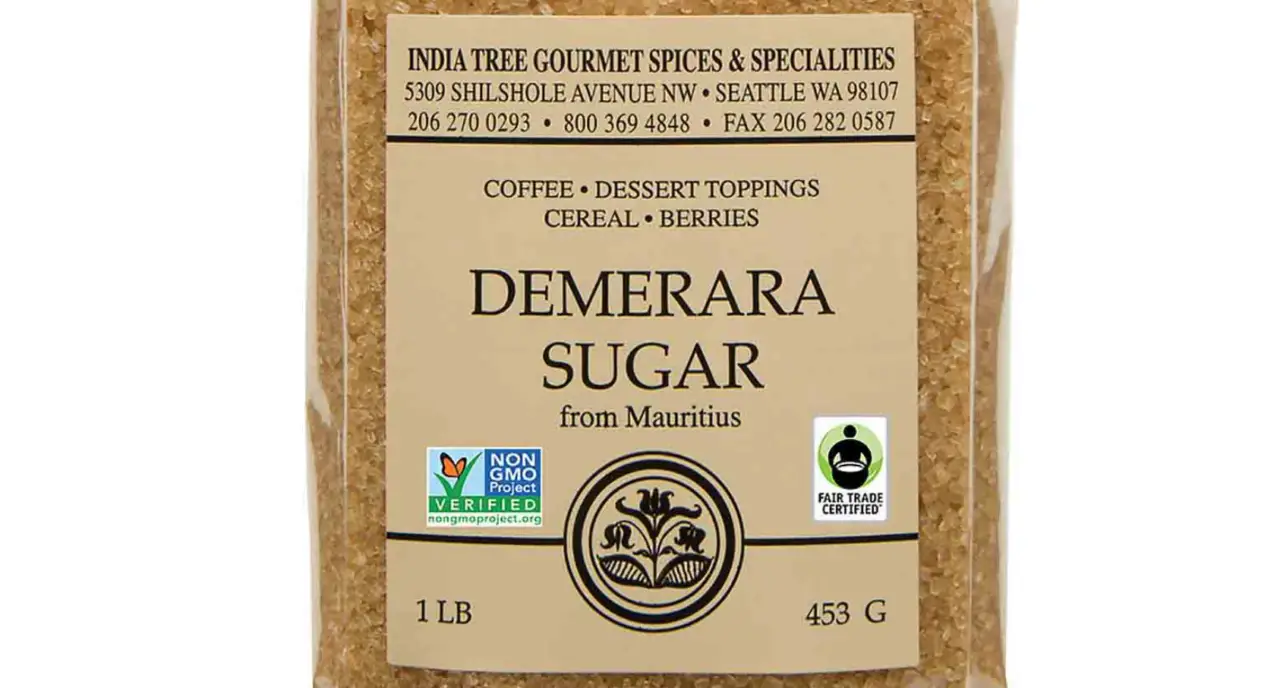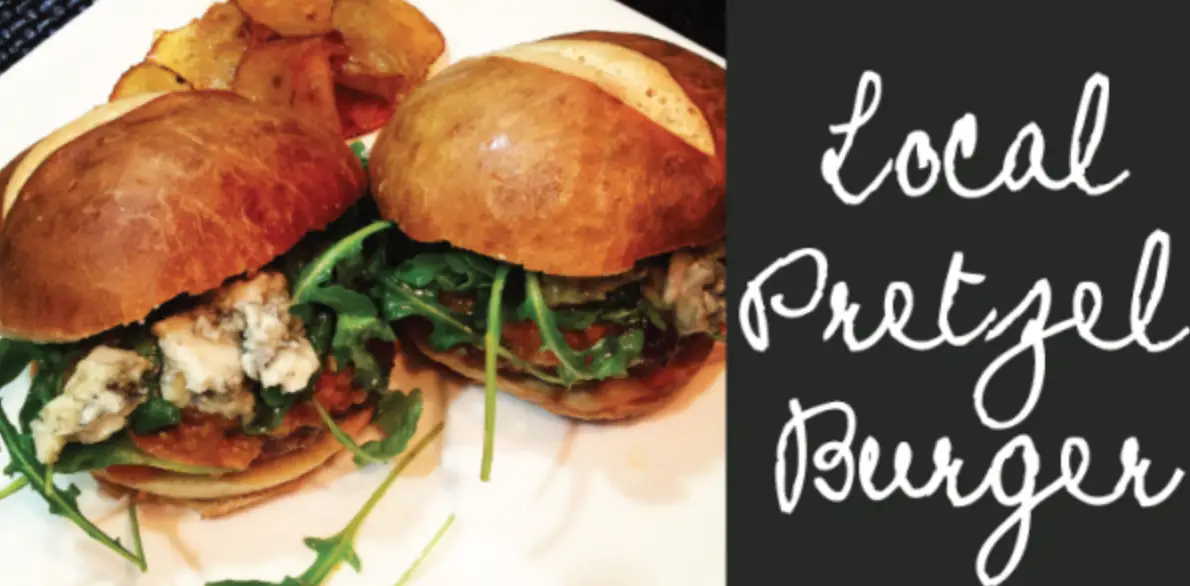Demerara is a type of cane sugar named after the Demerara River Valley and County in British Guiana (today Guyana, South America), where it originally came from. Demerara sugar is a type of unrefined cane sugar most often used for desserts and beverages, but it can also be used for savory dishes. Demerara sugar is often added to muffins, fruit pies, and fruits. Demerara syrup is often added to baked meat to give it an unusual caramel-like flavor.
Demerara sugar crystals are big, sticky, hard, crunchy, and golden brown in color. Demenara has a mildly sweet flavor similar to caramel and butterscotch. Since demerara sugar crystals are quite large, they are often used as a topping for muffins, cakes, pies, and other desserts to give the dish a pleasant crunch.
Demerara sugar can be easily found in European grocery stores, but it is only gaining popularity in the US. If your recipe calls for demerara sugar but you do not have it on hand, do not worry – in this article, we will show you the 6 best demerara sugar substitutes that will take your desserts to a new level!
So, the 6 best substitutes for demerara sugar are turbinado sugar, muscovado sugar, light brown sugar, dark brown sugar, coconut sugar, maple sugar, molasses, and refined white sugar. Now let’s dive into each substitute to see what they taste and look like!

Turbinado Sugar
Turbinado sugar is a partially refined raw sugar, from the surface of which a significant part of the molasses is removed by steam or water. Turbinado sugar is the closest demerara alternative as it shares a similar level of sweetness and texture – turbinado sugar consists of large crystals and has a golden-brown color. Demerara sugar has larger crystals meaning that turbinado will not give as much crunchiness.
Turbinado sugar works well in tea, coffee, and sweet beverages. It is also used to dress up baked fruit, sprinkle on muffins, pies, cakes, and cookies as well as on sweet potatoes or roasted carrots to give them a cool crunch. Turbinado sugar is also used to make candied nuts and grilled meat or poultry.
Muscovado Sugar
Muscovado sugar is the second-best demerara sugar alternative. It is a type of partially refined to unrefined sugar with a distinctive caramel aroma, a dark brown color, and a sweet and slightly fruity flavor. Muscovado has a somewhat wet and sticky texture similar to wet sand.
As a demerara sugar substitute, muscovado can be used in cookies, pies, cakes, candies, ice cream, tea, coffee, cereal, glazes, gingerbread, toffee, caramel, and popcorn. Muscovado sugar can even be used to make bbq sauce and marinades!
Light Brown Sugar
Crunchy, light brown in color (can you imagine?), this type of sugar is an all-round substitute for demerara sugar in all recipes. Light brown sugar has a smaller amount of molasses content than dark brown sugar and has a milder flavor that works well in recipes, whether you are cooking sweet or savory meals. Light brown sugar is easy to find in any shop and it has an almost identical taste profile.
Dark Brown Sugar
Dark brown sugar has a higher content of molasses and can also be used as demerara sugar substitute. It has a darker color and a richer taste than light brown sugar with pronounced caramel notes. Dark brown sugar can be added to tea, coffee, cocktails, ice cream, granola, cereal, baked goods and even savory dishes!
Coconut Sugar
Coconut sugar a.k.a coconut palm sugar is a natural sweetener derived from the sap of the coconut palm. Coconut sugar is often used as a healthier cane sugar alternative as it has a lower GI (54), but it also can be used as a substitute for demerara sugar. Coconut sugar is minimally refined and contains small amounts of fiber, minerals, and antioxidants.
Coconut sugar has a strong caramel taste, is light brown in color and has a texture similar to brown sugar. It is more coarse that white refined sugar but is less coarse than demerara sugar, meaning it will not be as crunchy. Just like other types of sugar, coconut sugar can be used in cakes, cookies, muffins, sauces, marinades, or sprinkled on cereal, granola, fruit, and meat.
Maple Sugar
Maple sugar is another demerara alternative. It is natural, minimally processed sugar made from Canadian maple trees that has a rich sweet and nutty flavor. Since maple sugar is more sweet than demerara sugar, you will need less of it – good for those watching their calorie intake!
Since maple sugar is only minimally processed, it offers more health benefits than other sweeteners – maple sugar is a great source of zinc, calcium, iron, potassium, and manganese. Since it is high in calories, it should be used in moderation. But otherwise, maple sugar is a good demerara sugar alternative that can be easily found in a grocery shop.
Molasses
Molasses is a complex carbohydrate obtained from processing sugar beet or can that is commonly used as a food additive, sweetener, and thickener. Molasses have a viscous thick consistency and a dark brown color. Mollases are often added to sauces, cereal, caramel, jam, ice cream, marmalade, bread, muffins, and cakes. Molasses can be used to substitute demerara sugar, brown sugar, maple syruo, honey, or dark corn syrup. In terms of taste, molasses have a deeper, warmer, sweeter taste than demerara sugar and it even has somowhat smoky notes.
Refined White Sugar
While refined white sugar is not exactly the best demerara sugar alternative, it can be used as one to add sweetness to your meals when you are out of other types of sugar. White sugar is easy to find and it is cheap so it is a universal ingredient to sweeten the meals up!
Conclusion
Even though demerara sugar is often used not just for desserts and sweet beverages but also for savory dishes, it is not that easy to find in the US. While there are plenty of demerara sugar substitutes, turbinado, and muscovado sugar are the best demerara alternatives as they have a similar level of sweetness and a nice crunch to them. However, even regular white sugar can be a decent demerara substitute as it will give a similar sweetness and, in fact, is not that less healthy than demerara. Bon appetit!

